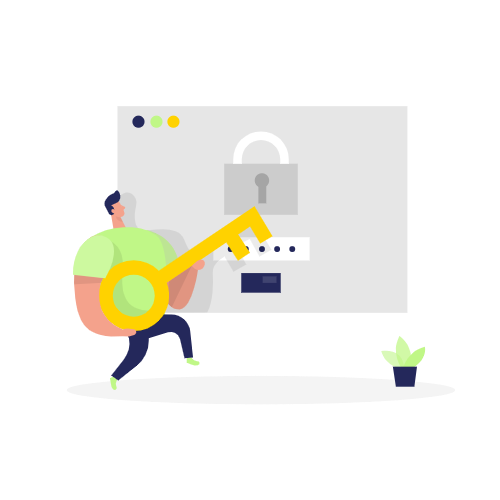What does custody mean in relation to cryptocurrency? It really comes down to two things; who owns the asset and who is storing/safekeeping that asset. It's important to understand the benefits and any associated risks with your choice of custodial approach, so let's take a look at the options.
Overview:
- Using a cryptocurrency custodian
- Self-custody
- Custody comparison
Using a cryptocurrency custodian
A cryptocurrency custodian is a company that specialises in storing digital assets. Although this is mainly aimed at institutional investors there are also options for individuals too. For example, upon making your first crypto purchases, your assets would initially be stored in a custodial wallet managed by the exchange you are buying from. Each custodial service provider will handle your assets slightly differently, so it's important to delve into the detail of this if you do choose to pursue this option. We've compiled a list of the key considerations below:
- Geographical location - It may be of some reassurance if the company operates within your country, or at least has a good knowledge of applicable local laws and regulations.
- Regulation - Is the company a regulated custodian? This will place more responsibility on them, and less on you.
- Supported Assets - Do they provide custodial services for the digital asset type you plan to invest in? Remember, more is not always better, covering too many assets could leave security spread thin.
- Insurance - Do they offer insurance? If so, what are the details surrounding this?
- Proven track record - How long has the company been around? How many assets do they currently have under custody? Build a strong understanding of the type of business they are and how well they meet your needs.
- Cost - What are the fee's associated with the custodial service? Can they offer what you need within a price range you can afford?
- Technical setup - Does the company use their own infrastructure? or is this provided by a third party?
- Auditing - Does the company receive regular audits? are these carried out by a reputable source?
Now, this is of course a lot of information to take in, but ultimately this is a decision not to be taken lightly.
Using a crypto custodian is not by any means the safest solution, and we are constantly reminded of this every time we see an exchange suffer an attack. Custodial wallets have a huge target painted on their back, and there are criminal organisations desperate to get a piece of the assets they hold. It's also of great concern to us that these custodial services are able to freeze assets, as they operate under the legal framework of the government or jurisdiction in which they operate - a worrying reminder of just how centralised many of these custodial services are.
Self-custody
Self-custody means storing the private keys to access your digital assets in a non-custodial wallet (Hardware wallet). For us, this is what true digital ownership is all about. Taking this approach cuts out any risk associated with a third party controlling your assets, and empowers you to take steps to secure your assets.
For those who find the prospect of being your own bank daunting, this is where we want to help. We strongly believe that everyone is capable of managing their own digital assets, provided they have access to the correct tools and a basic understanding of how to use them. The team at Crypto Nest has worked tirelessly to source and test products which can enable secure self-custody practices whilst being straightforward to set up and use.
Summary
In closing, let's take a look at the key comparative points between custodial approaches:
|
Self-custody
|
Custodial Service
|
|
Freedom - Transfer, Stake and Exchange digital assets to your heart's content.
|
Restrictions on how you can use digital assets held in custody.
|
|
Complete digital asset ownership.
|
The custodial company holds your private keys.
|
|
Low risk - The only risk is yourself.
|
Higher risk - Entrusting the custodial company with security and all decisions relating to your assets.
|
|
One time cost that can be tailored to your budget.
|
Annual fee's.
|
|
Digital asset security for a lifetime.
|
Fixed-term custodial service.
|
| Decentralised - Owning your private keys means no one can take away your digital asset ownership from you, even if they wanted to. | Centralised - Custodial services operate under government control, as such, they may be forced to freeze assets or disclose personal information to authorities. |
|
Crypto Nest supports you to become your own bank. We want you to be independent.
|
Custodial service doesn't want you to be independent.
|
If you're looking to take your first steps into the world of Crypto self-custody then we'd love to help. Please get in touch with us and we'll happily answer any questions you have. Self-custody is for everyone, and we're here to prove that.



